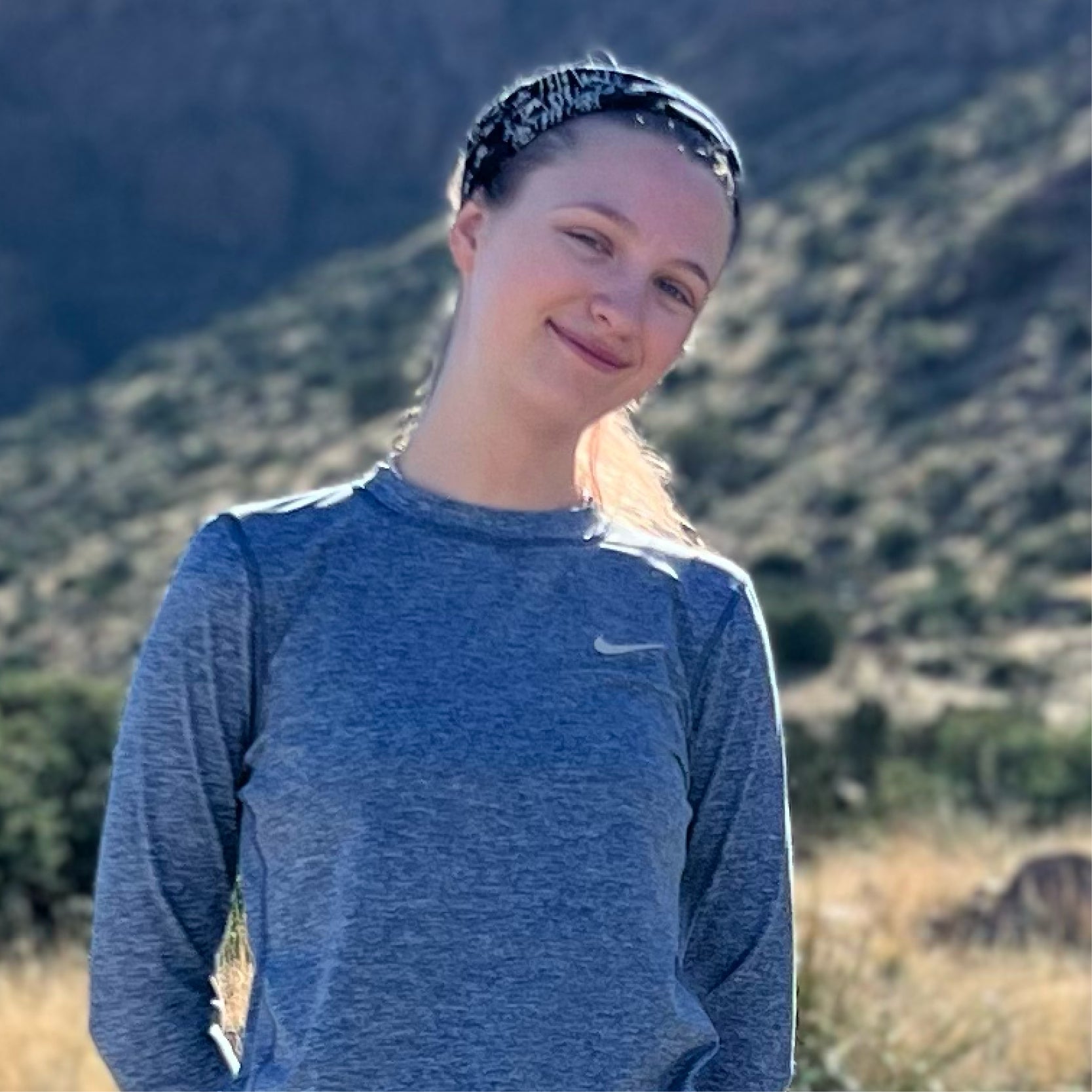Major: Biosciences - Ecology and Evolutionary Biology Concentration
“I have been absolutely obsessed with fungi since I was a kid,” said junior Bell Scherick. Bell, who is majoring in Biosciences with a concentration in Ecology and Evolutionary Biology, has a deep appreciation for the often-overlooked kingdom of organisms that play a huge role in nearly every ecosystem.
Even before coming to Rice, Bell knew that she was interested in fungal research. Her search for labs that were working with fungi led her to Tom Miller, associate professor of biosciences. Reaching out to him for an informal introduction led to a research placement much more quickly than expected. “I originally only meant to ask for a tour of the lab, but Dr. Miller offered me a job as a research assistant,” Bell said. “I happily accepted and have been working with the lab ever since!”
Bell’s work in the Miller lab focuses on Epichloë fungi, a genus that lives between the living plant cells of many cold season grasses. The fungi provide benefits to the grass — providing drought tolerance as well as some protection from being eaten by insects and vertebrates — but they are also a significant energy burden for the host. There is debate over whether to classify this relationship as mutualistic, where both species benefit, or parasitic, where the fungus is causing harm to the grass host.
Answering this question is made more difficult by the fact that the nature of the relationship between Epichloë and the host grass transforms over time. “The endosymbiont host relationship changes in character from positive to negative within the host’s lifetime,” Bell explained. The study she is working on is the first with enough data on Epichloë to distinguish age-specific effects and assess whether the lifetime influence of these fungi is synergistic or parasitic. “Measuring age-specific life history traits allows us to precisely identify where the relationship went sour and hypothesize why,” she said.
It turns out that the reproductive pathways available to the fungi have a large impact on the grasses’ age-specific life history traits. Some species reproduce vertically, infecting the seeds of the plants so that any new plants that grow from those seeds will also be infected, while others can reproduce horizontally, without the help of the host.
“I found that one of the most significant factors influencing host plant age-specific life history traits is whether or not it houses a horizontally reproducing species,” Bell said. “This is because organisms that only reproduce vertically have a vested interest in host fitness and reproductive success. Organisms that have the ability to horizontally reproduce are more likely to be a detriment to the host plant.”
Bell hopes to continue her study of fungi well into the future, planning to go to graduate school to earn a Ph.D. “I am super interested in fungi, so I want to spend my life researching the relationships that fungi have with other kingdoms, such as plants and animals, and the role they play in an ecosystem.”

